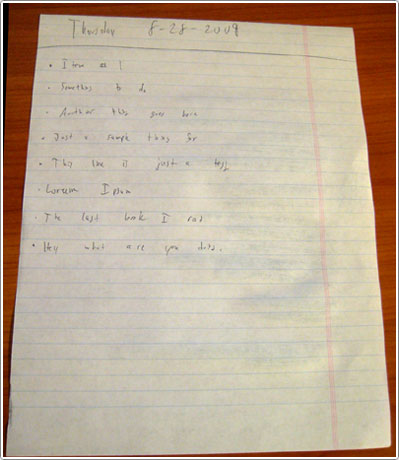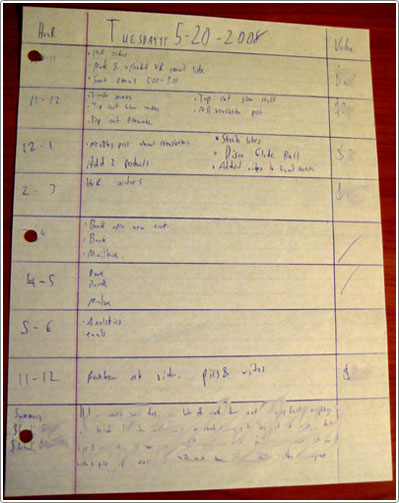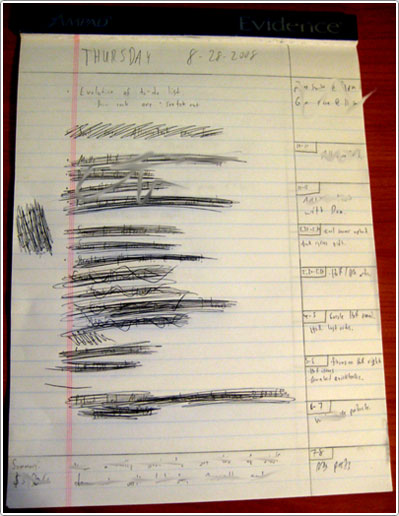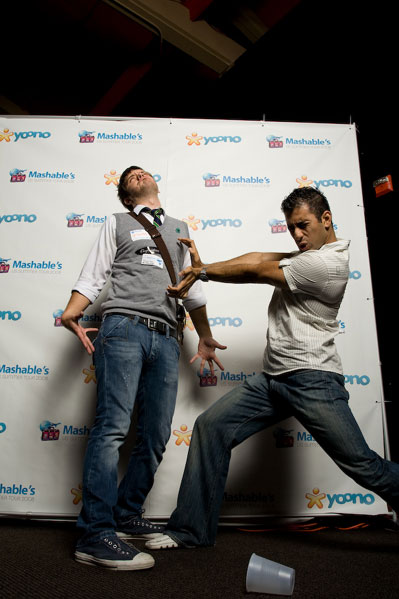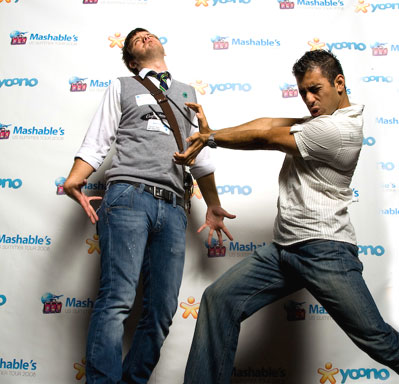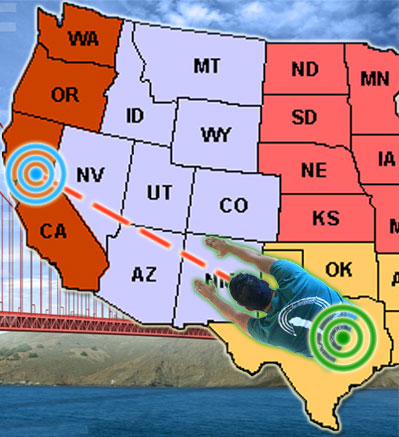Everybody has their own personal preference when it comes to organization, and I thought I’d take a quick analysis on the evolution of my daily to-do list:
—–2004—–
I was still in college this year, and my tablet PC was with me pretty much every step I took. I opted to keep all my tasks on the tablet using Microsoft OneNote (the most underrated piece of software on the planet) and my desktop:
As you can see all my tasks were physically displayed on the desktop of the computer, and I could edit/drag those boxes with ease.
Around this time I started realizing that having to open my laptop to view my to-do list was not the most convenient thing, so I decided to go more low tech and use plain old sticky notes:
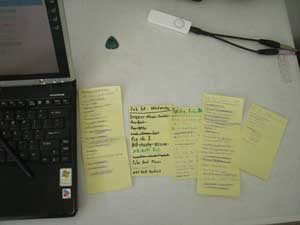
I would generally start with one sticky note, then start “chaining” them as the list got bigger. I’d say this method was pretty effective since you can carry them anywhere and edit them with ease.
—–2006—–
Around this time I realized the sticky notes were too small to write larger tasks, so I stayed low tech but upgraded to full sized sheets of paper:
Piece of paper with my tasks on it…basic and works very well.
—–2007—–
After a while I realized while I was getting my tasks done, I wasn’t sure how much time they’d taken me. In fact I wasn’t sure if I was even getting at least a full 8 hours of work in per day.
Solution: The ancillary to-do list tracking sheet:
I would make this sheet everyday in addition to the to-do list, so I would have two pieces of paper on my desk at all times. I would record the hour, what I did during that hour and the dollar value that work brought in.
After a while I removed the dollar value column since most work I do doesn’t bring in money itself, but helps make money down the road.
This tracking sheet worked extremely well since it made me self conscious about how much work I was actually completing per day. If I was slacking off, I could clearly see it.
—–2008—–
So the to-do list plus tracking sheet seemed to be a great combination for me, then one day I got the brilliant idea of combining the two sheets. I don’t know why I was messing around with two separate sheets per day when I could just as easily combine the two. So now I have something on my desk everyday that looks like:
Top column: Date, daily goals (if any), random reminders.
Right column: Daily events and times, hourly work tracking.
Bottom footer: Daily summary, income earned.
—–2009—–
(updated 10-08-2009)
The 2008 formatting was very successful and I still use it till this day, however there was one problem: With so much work to do every day, I’d get overwhelmed and scatter-brained about the work. Almost immediately I’d see tasks which I avoided doing or wanted to put off. This lead to many incomplete to-do lists, and postponing work till the next day, then next etc….
So one day I took a sheet of paper and covered the whole to-do list. I inched the paper down to reveal ONE task. I completed it. Then I inched down to reveal the next. Completed it.
Having a singular goal to work on helped immensely!
Towards the end of that day I inched down only to reveal I had completed every single task I assigned the day before! It was a great feeling to get through all the work in such a quick and easy manner. Since then I’ve been using this little trick to help me complete to-do lists, and it’s still working great.
Here’s a quick video documenting how I structure, complete and save my to-do lists:
At the end of every day I put each to-do list into a binder for future reference.
After doing this for several months, it’s nice to go back and look through them. If one month I didn’t progress much, I can clearly see why by looking at these daily performance reviews. I make notes of good days, bad days, workout regimens, interesting happenings etc.
My Best Advice On To-Do Lists:
Figure out your own way and try many different methods. Most methods work extremely well for about two weeks then trail off. Your work and commitments are most likely much different than anyone else’s, so come up with your own to-do list style.
The one piece of advice I will give that should work for everyone:
Always make your to-do list the day before. If it’s Wednesday right now, you should have your Thursday to-do list made before you sleep. Seriously, it helps a lot.
————————–
NEVILLE’S TO-DO LIST
————————–
1.) Write post about evolution of to-do list.
2.) Say goodbye.
Goodbye!
-Nev

